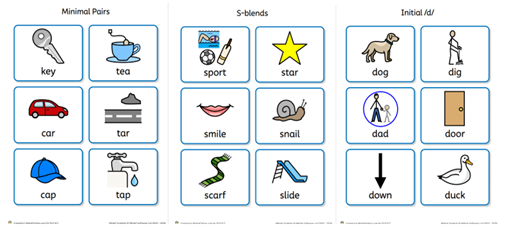The Lived Experiences of Parents Attending KidsTime
As part of my stage four research project at the University of Plymouth, I chose to investigate the lived experiences of parents attending the KidsTime programme in Plymouth. Using Interpretive Phenomenological Analysis (Smith et al., 2009), findings were presented in a final written report that was submitted for my final grade. A brief literature review, followed by a discussion of the findings is presented below.
What is KidsTime?
KidsTime is a fortnightly group programme designed for families where one or more parents have a diagnosis of mental illness, and where this is impacting the family’s overall well-being. Each session lasts two hours and focuses on building understanding of mental health through psychoeducation, encouraging creative expression through art, and supporting open communication within families about the challenges they face.
Children and parents engage in the first part of the session together, and then split into separate groups. Parents engage in an adult-only group where they discuss the topic and themes of the session, and children engage in creative activities to express their feelings and opinions on the topic. They then come back together and share what they have discussed/made.
This is run by a range of professionals from Psychotherapists, Family Learning Mentors, Educational Psychologists and various other team members from MAST.
Why Is It Important?
Parental mental illness is becoming an increasingly prevalent issue. Research indicates that one in six adults in the UK currently experiences a common mental health disorder (Vadivel et al., 2021), with prevalence rates higher among socioeconomically disadvantaged groups and women (Baker and Kirk-Wade, 2024).
When a parent is affected by mental illness, the repercussions often extend beyond the individual, impacting wider family dynamics. Children growing up in these circumstances face a significantly heightened risk of developing mental health difficulties themselves (Siegenthaler et al., 2012):
- Approximately 32% of these children are likely to experience serious mental illness.
- Around 70% may show internalising or externalising symptoms.
Moreover, these children frequently take on more responsibilities than the majority of their peers, leading to feelings of discomfort, guilt, and confusion (Aldridge, 2006; Cooklin, 2013).
Despite growing recognition of the need for systemic, family-centred interventions, as of 2021, only 31% of mental health interventions in the UK currently adopt this approach (Tapias et al., 2021). This highlights the critical role of programmes like KidsTime, which place the entire family at the centre of support efforts.
Research Project Findings
Using Interpretive Phenomenological Analysis (IPA), interviews were conducted with parents attending the KidsTime programme to explore their lived experiences. Three main themes emerged:
Reframing Identity Through Understanding
This theme captures how parents' identities were reshaped through participation in KidsTime:
- Acknowledging their mental illness and challenging the associated stigma.
- Gaining a deeper understanding of their mental health conditions.
- Developing skills to communicate openly with their children about mental illness.
Connection as a Catalyst for Change
This theme highlights the transformative power of connection within the group setting:
- The parent-only sections provided a supportive space for sharing experiences and offering mutual comfort.
- The child-only sections allowed children to engage with complex topics creatively, reducing the pressure of direct conversation.
- Building these connections motivated continued engagement and encouraged positive change within the family unit.
Stability Through Support and Structure
This theme emerged from parents sharing the importance of a predictable, professionally supported environment:
- Consistency and clear structure reduced anxiety for both parents and children.
- The expertise and stability provided by staff enabled families to explore complex issues within a safe and supportive environment.
A Reflection on Findings
In conclusion, the KidsTime programme offers a rare and valuable family-focused approach to addressing the impact of mental illness on family systems.
For parents, KidsTime fosters:
- Connection with others who share similar experiences.
- A deeper understanding of mental illness.
- An opportunity to reframe their identities as parents living with mental illness.
For children, KidsTime offers:
- Clarity about parental mental illness.
- A creative, non-threatening environment to express their feelings.
- The reassurance that they are not alone — and that their parent's illness is not their fault.
As a result, KidsTime stands out as a progressive, inclusive, and research-informed approach to supporting families affected by mental illness.
To find out more about OurTime and KidsTime workshops please visit: https://ourtime.org.uk/
To read the full written report on the KidsTime programme in Plymouth, please email: FWilson@plpcic.co.uk
If you are a SENCO or Head Teacher from one of our partner Plymouth schools and would like to talk about KidsTime for a family, please contact your MAST Link Educational Psychologist or call us on 07458 305 006.
Disclaimer: The views and opinions expressed in blog posts are solely those of the individual author and do not necessarily represent those of Plymouth Learning Partnership CIC. The content is provided for general information and educational purposes only and should not be relied upon as professional or legal advice. Plymouth Learning Partnership CIC accepts no responsibility or liability for any errors, omissions, or actions taken in reliance on this content. The individual author is responsible for ensuring that any third-party material used (including text, images, and media) does not infringe copyright. Plymouth Learning Partnership CIC does not accept liability for any unauthorised use of copyrighted material by the individual author.







